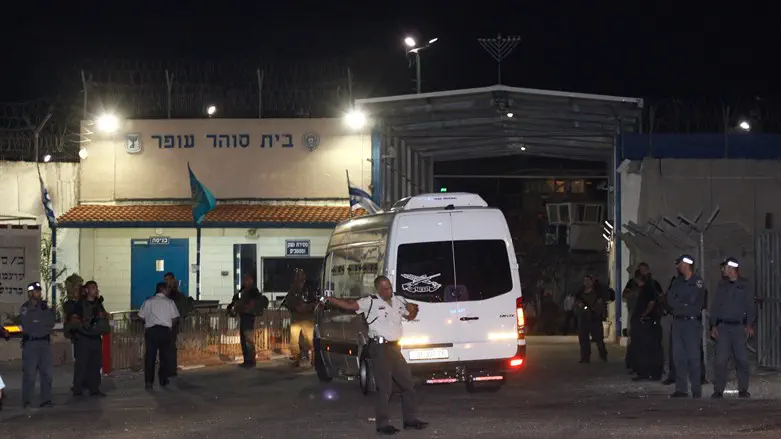
The committee for terrorists who are held in administrative detention in Israeli prisons has formulated a plan that includes a series of protest measures against the policy of administrative detention, which allows Israeli authorities to detain suspected terrorists for lengthy time periods even without indictment and prosecution.
The Al-Araby Al-Jadeed newspaper reported on Monday that 1,200 administrative detainees are currently held in Israeli prisons, making up 23.5 percent of all security prisoners.
At a press conference Ramallah, the committee stated that the protest activity will be carried out in stages, and it will include moves that will lead to the transfer of prisoners to solitary confinement, protests outside the prison, returning of food rations, cessation of work with the medical clinic, the cessation of taking medication and measures of disobedience and rebellion.
In addition, a hunger strike is planned that will lead to a complete hunger strike on the part of all administrative detainees and the expansion of the boycott of the "occupation" courts.
Helmy Al-Araj, director of the Center for the Defense of Civil Liberties and Rights, called on the Palestinian Authority, the UN Secretary-General and human rights organizations to turn to the International Criminal Court to discuss the legal status of the prisoners after 55 years of "occupation".
Arab terrorist prisoners have turned hunger striking into a pressure tactic aimed at forcing Israel to release them out of fear for their lives. Israel has several times in the past caved to the pressure and released some hunger strikers.
At times, the terrorists were found to be secretly eating during the hunger strike. A prominent example of this was in 2017, when the Israel Police released footage of archterrorist Marwan Barghouti, who was caught eating in secret while maintaining the pretenses of his own hunger strike.